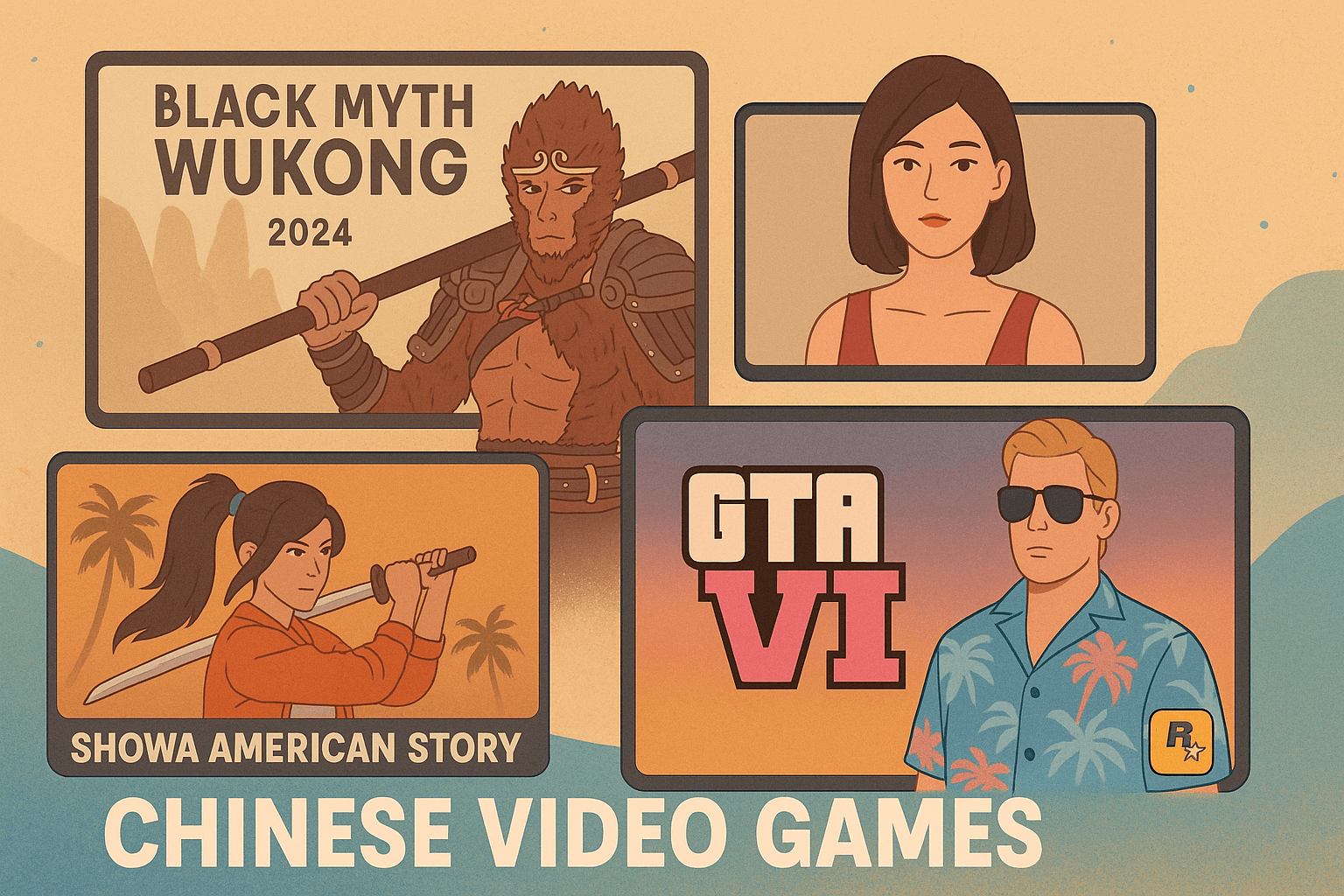 When Black Myth: Wukong went viral in 2024, it sparked a global conversation: Could China finally produce a console title capable of rivaling the West’s biggest franchises? The action-RPG’s stunning visuals and fluid combat had players around the world eagerly anticipating its 2025 release, and for the first time, a Chinese-developed AAA game looked ready to sit at the same table as God of War or Elden Ring.
When Black Myth: Wukong went viral in 2024, it sparked a global conversation: Could China finally produce a console title capable of rivaling the West’s biggest franchises? The action-RPG’s stunning visuals and fluid combat had players around the world eagerly anticipating its 2025 release, and for the first time, a Chinese-developed AAA game looked ready to sit at the same table as God of War or Elden Ring.
But halfway into 2025, it’s becoming clear that Black Myth may be the exception—not yet the rule.
A Cultural Storm in China: “Lao Girl Simulator”
Earlier this June, a game quietly launched on Steam: Emotional Fraud Simulator, more colloquially referred to in Chinese communities as “Lao Girl Game” . It’s part interactive movie, part social experiment, simulating the kind of emotional manipulation seen in real-world romance scams.
Within days, the game topped Steam’s sales charts in China, receiving over 96% positive reviews. On Chinese platforms like Bilibili and Weibo, it became a viral sensation—praised for its “emotional realism” and brutally honest take on online relationships.
But outside of China? Silence.
The game’s Steam page is only available in Chinese. There’s no English subtitle option, no Western media coverage, no Reddit threads. Its explosive success appears confined almost entirely to Chinese-speaking communities.
Meanwhile, GTA VI Is Dominating Global Discourse
Contrast this with Rockstar’s GTA VI. The second trailer alone broke records, racking up over 400 million views and dominating global trends. Entire subreddits are dissecting every frame, media outlets are running weekly opinion pieces, and influencers are riding the hype train months ahead of launch.
GTA VI is not just a game—it’s a global event.
When compared side by side, the difference is stark. One title is igniting debate and excitement across cultures; the other, while wildly successful in its home market, remains culturally opaque to the outside world.
Can Chinese Games Truly Go Global?
That question doesn’t have a clear answer yet—but the coming months may offer some clues.
Two highly anticipated Chinese-developed console games are scheduled to launch later this year:
Showa American Story
A quirky post-apocalyptic RPG set in a fictional America colonized by Japan, this title mashes up retro Americana, zombies, and Japanese aesthetics. It has generated buzz not only in China but also among niche Western audiences who’ve seen its English trailers on IGN and YouTube. However, its offbeat cultural references could prove to be a double-edged sword: clever to some, alienating to others.
Wuchang: Fallen Feathers
This dark fantasy Souls-like set in the Ming dynasty seems more likely to break through. With multilingual support, simultaneous release on PC, Xbox, and PlayStation, and a confirmed Game Pass launch, Wuchang has already caught the attention of outlets like PC Gamer and TechRadar. If executed well, it could be China’s next big leap into the Western-dominated action genre.
A Bridge Between Cultures: Sometimes, It’s the Classics That Connect Us
While the gaming world eagerly awaits GTA VI in 2026, there’s a whole generation of players nostalgic for its roots.
GTA: San Andreas, for instance, remains a cult classic that many still revisit today. And thanks to alternative platforms like TopStore, players can re-experience titles like San Andreas on mobile without diving into overly complex installs or system tweaks. It’s not about replacing the new—but reconnecting with what made us fall in love with open-world games in the first place.
Final Thoughts
Chinese developers are creating bigger, bolder, and more culturally resonant games than ever. But “going global” requires more than production value. It demands localization, cultural bridging, and media outreach.
Black Myth: Wukong may have cracked the door open. Whether Showa American Story or Wuchang can walk through it—and whether games like “Lao Girl Simulator” can someday translate their raw emotional impact for non-Chinese players—remains to be seen.
But one thing is certain: The world is watching.